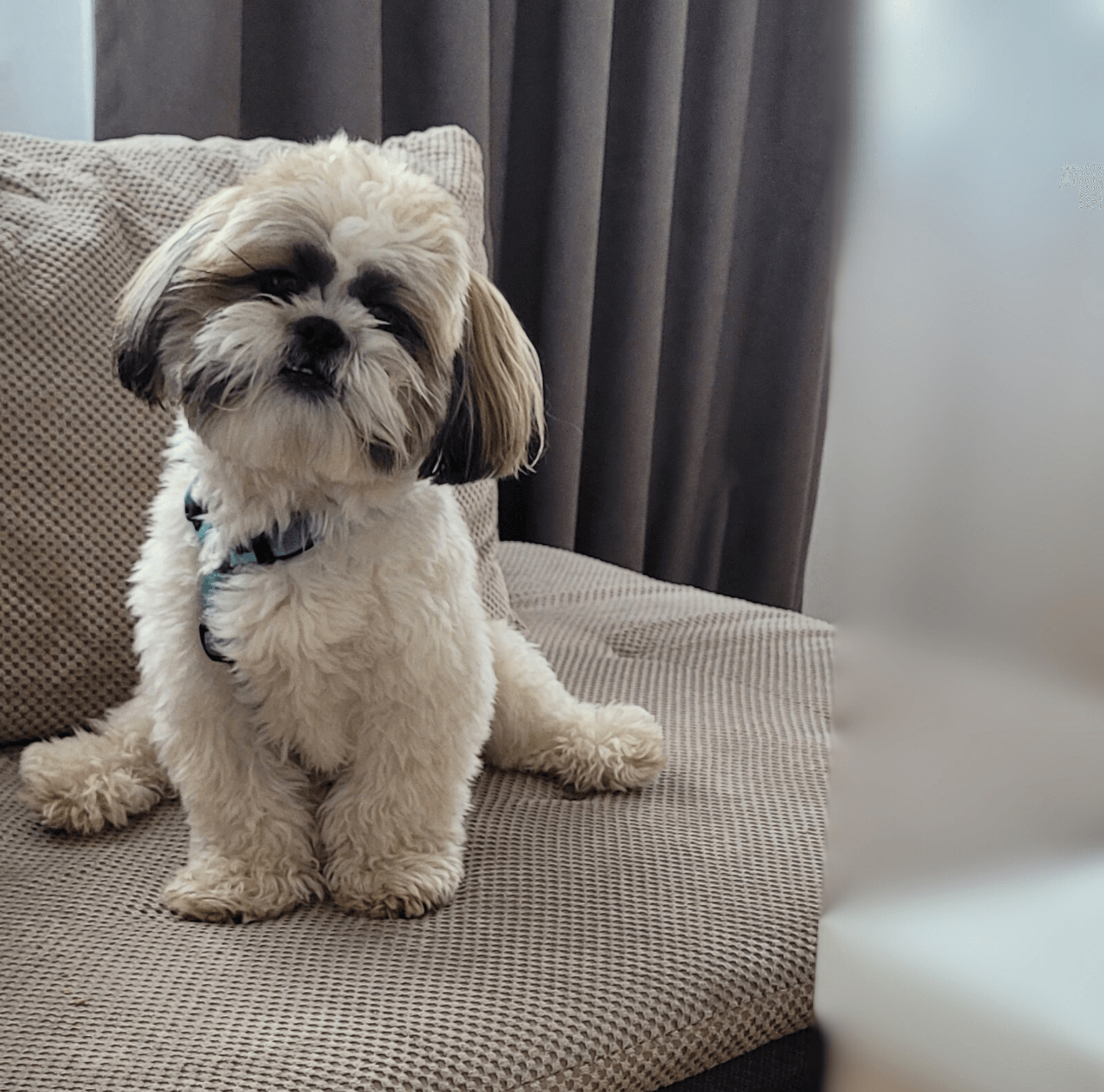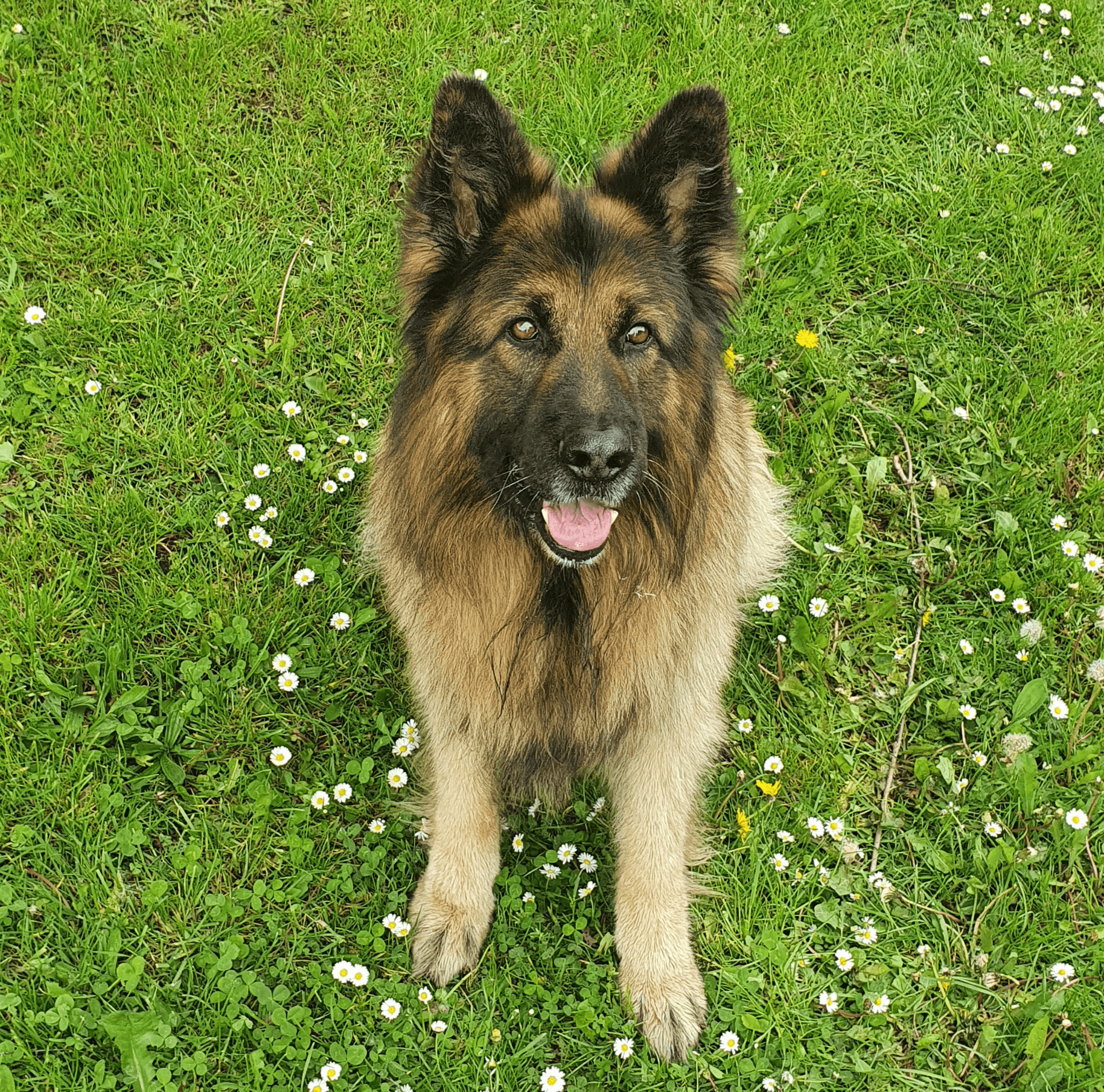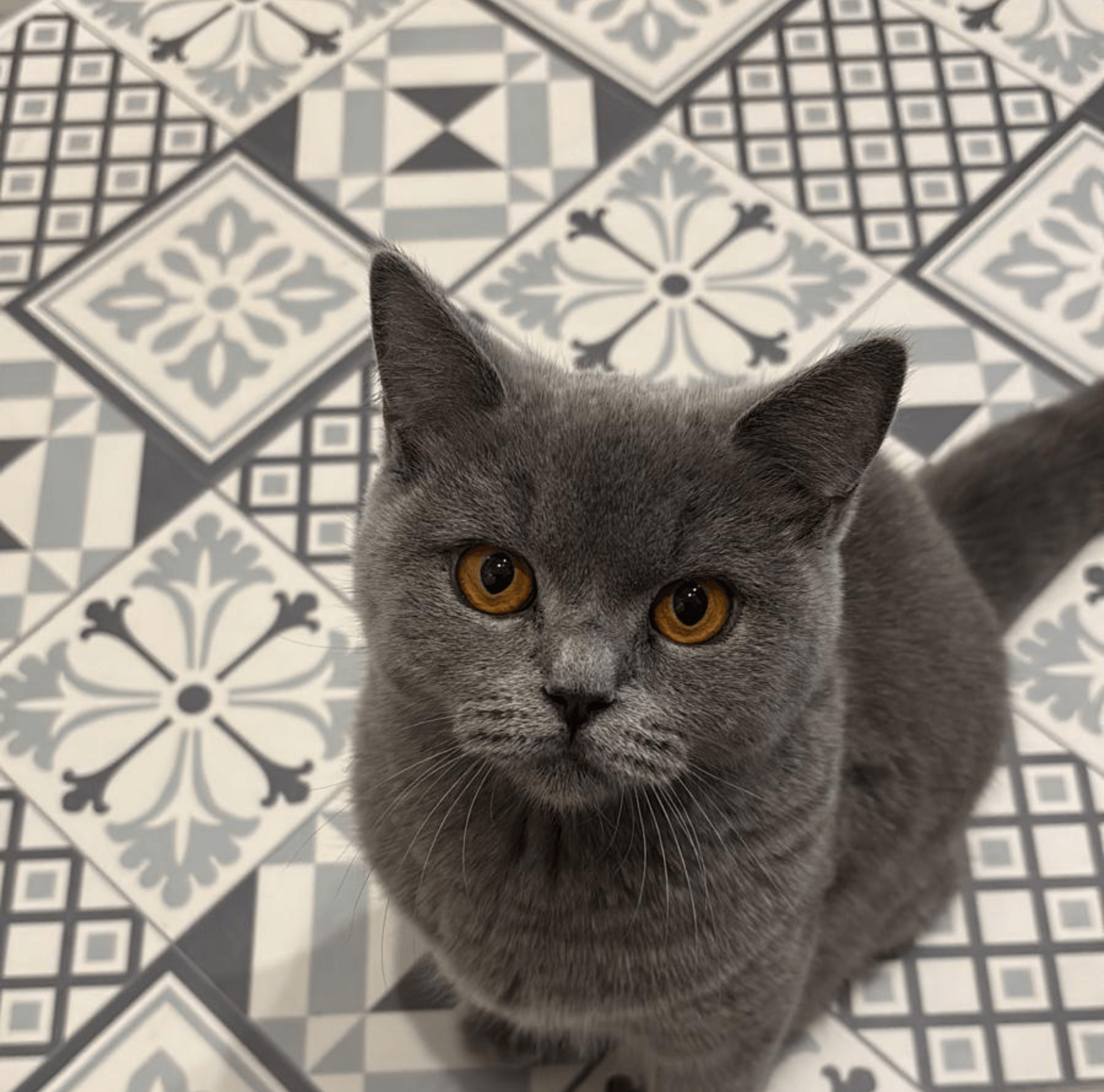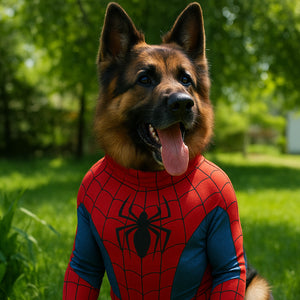
Shih Tzu – a little aristocrat with a big heart
Contents
- The origin and history of the Shih Tzu breed
- Appearance and characteristics
- Temperament and relationships with family
- Shih Tzu care – hair, eyes, claws
- Health and common problems
- Nutrition – what food for a Shih Tzu?
- Who would be the perfect Shih Tzu dog for?
- Shih Tzu Trivia
- Summary
- Petto's recommended products for Shih Tzu
- FAQ - Frequently asked questions about Shih Tzu
1. Origin and history of the Shih Tzu breed

The Shih Tzu is one of the oldest and most revered dog breeds in the world, with roots dating back thousands of years. Their history begins in Tibet, where they were bred by Buddhist monks as sacred temple dogs. They were believed to have the ability to ward off evil spirits and bring good luck and prosperity.
In the 8th century, Tibetans began presenting these dogs as gifts to Chinese emperors of the Tang Dynasty. Shih Tzus became favorites of the royal family, and their role at court was not only decorative but also spiritual—they often slept at the feet of empresses and participated in meditation. They were believed to be able to recognize malicious intent and possess protective qualities.
During the Ming and Qing dynasties, more selective breeding of Shih Tzus began. Their lion-like appearance was emphasized, which held symbolic significance in Chinese art and religion. They were also tasked with warming the emperor's feet in winter, hence their common name, "Empress's Foot Dog."
The breed nearly died out during the Cultural Revolution in China, but fortunately, thanks to British breeders and missionaries who brought a few specimens to Europe, it was saved. Shih Tzus were officially recognized by the British Kennel Club in 1935, and they were brought to Poland after World War II.
Today, Shih Tzus are one of the most popular companion dog breeds – both because of their origins and their unmatched character.
2. Appearance and characteristics
The Shih Tzu is a small but solidly built dog with a uniquely decorative coat and expressive gaze. Their appearance combines elegance, exoticism, and the characteristic features typical of brachycephalic (short-snouted) dogs.
Its body is compact, with a straight back and a strong set. The head is large in proportion to the rest of the body, and the muzzle is broad and short, giving the face a distinctive, almost "childlike" expression.
The Shih Tzu's coat is one of the breed's most recognizable attributes – long, silky, and often reaching the ground if not regularly trimmed. It comes in almost every imaginable color: from classic white and red, through gray, to shades of black and gold.
The most important appearance features:
- Body weight: 4–8 kg
- Height: 20–28 cm
- Thick, long fur – can reach the ground
- Large, dark eyes with an expression of tenderness and intelligence
- Flattened muzzle and wide skull
- The curled tail is set high and lies on the back.
- Long ears, covered with abundant hair - creating the effect of a mane
On the move, the Shih Tzu carries himself with pride – his gait is confident, supple, and his head and tail are held high. This is a dog that looks like an aristocrat – and acts like one!

3. Temperament and relationships with family
The Shih Tzu is a gentle, sociable, and charming breed. It loves being around people and thrives in homes with children, the elderly, and other pets. Despite its aristocratic appearance, it has a cheerful and playful disposition.
These dogs are exceptionally empathetic – they can tune into their owner's emotions and often become their loyal shadow. They enjoy being a companion in everyday activities, and their favorite place is often the couch or their owner's lap. Shih Tzus value routine and peace, but they can also surprise with their energy during play.
They aren't naturally noisy, but they can communicate their needs through barking—especially if they feel ignored. They tend to be friendly and non-aggressive with other animals, making them excellent companions for other dogs and even cats.
Despite their small size, Shih Tzus have strong personalities – they can be stubborn and independent, which can require patience during training. Positive motivation and a calm approach are key – punishing this breed is counterproductive.
Advantages of the Shih Tzu character:
- very attached to the owner,
- not very barking,
- does not require long walks,
- easy to adapt to the apartment,
- cheerful, intelligent, sensitive and gentle,
- suitable for families and singles.
4. Shih Tzu care – hair, eyes, claws
Grooming a Shih Tzu is one of the biggest challenges, especially if you decide to maintain its long coat. This breed requires consistency and gentleness – neglecting it for even a few days can result in mats, skin irritation, or infections.

Basic care treatments:
- Comb your hair daily with a natural bristle brush or a wide-toothed comb, preferably moistened with an antistatic preparation.
- Bathe every 2–3 weeks , using specialized shampoos and conditioners designed for long-haired breeds.
- Drying with a hairdryer on a cool setting while combing – this prevents hair from tangling and helps with styling.
Eye and mouth care:
- Shih Tzus have bulging eyes that water easily – they should be gently washed daily with eye hygiene fluid.
- Hair around the eyes should be trimmed or tied in a ponytail to avoid irritating the eyeballs.
- The beard and muzzle area should be wiped after each meal to prevent discoloration and bacterial growth.
Ears and claws:
- Shih Tzu ears are covered with thick fur and are prone to inflammation – it is worth checking them regularly and cleaning them with a veterinary product.
- Nails should be trimmed every 2–4 weeks, especially in less active dogs that do not wear them down naturally.
Styling: For ease of grooming, many owners opt for a short haircut—the so-called "puppy cut." Maintaining a long coat takes more time, but it allows for the creation of decorative updos and the presentation of the dog in a show-style manner.
Grooming visit: Recommended every 4–6 weeks. A professional groomer will help care for your pet's skin, ears, and paws, and select products appropriate for their coat type.
Grooming your Shih Tzu is a daily ritual that strengthens your bond with your dog and allows you to quickly spot skin lesions, parasites, or signs of illness. It's also a time for relaxation and building trust between dog and owner.

5. Health and common problems
Although the Shih Tzu is a relatively hardy breed, it is prone to certain health issues, which stem from both its anatomical structure and genetic predisposition. Early detection of warning signs and preventative veterinary care are crucial to keeping your dog in good health for years to come.
The most common Shih Tzu health problems:
- Eye problems: Their bulging eyes are susceptible to mechanical trauma, conjunctivitis, entropion (folded eyelid), and dry eye syndrome. Regular ophthalmological examinations are recommended.
- Brachycephalic Syndrome: A flattened muzzle can cause this breed to have trouble breathing, especially in hot weather and during strenuous exercise. Symptoms include snoring, shortness of breath, and wheezing.
- Dental disease: A narrow jaw and densely packed teeth can lead to tartar buildup, gingivitis, and bad breath. Daily brushing and professional cleanings every 6–12 months are essential.
- Skin problems: Shih Tzu skin can be sensitive and prone to contact and food allergies. Long-haired dogs often develop dermatitis in damp or matted areas.
- Joint dysplasia and degeneration: Although less common than in larger breeds, joint dysplasia and degenerative joint disease can occur in older Shih Tzus. Joint support supplements and weight management are recommended.
- Umbilical and inguinal hernias: are relatively common in young animals and are usually surgically corrected in puppyhood.
- Chronic ear infections: caused by hanging, hairy ears. Regular cleaning and airing of the ear canals is an important preventative measure.
Preventive health care for Shih Tzu:
- Regular visits to the vet – at least 1-2 times a year.
- Vaccinations, deworming, protection against ticks and fleas.
- Oral hygiene – toothbrush and veterinary paste.
- A balanced diet and appropriate weight.
- Physical activity adapted to the breed's capabilities.
A well-cared-for Shih Tzu can enjoy health and well-being for many years. The average lifespan of this breed is 12–16 years , although some individuals live beyond 18 years.
6. Nutrition – what food for Shih Tzu?
Shih Tzu is a breed with a sensitive digestive system and a predisposition to allergies, so a proper diet plays a key role in maintaining their health and condition.
The most important features of good Shih Tzu food:
- High-quality protein: preferably from a single source (e.g. lamb, turkey, rabbit), avoid chicken, which often causes allergies.
- Grain-free formula: reduces the risk of allergies and digestive problems.
- Small granules: adapted to the small mouths of this breed, facilitate chewing and support oral hygiene.
- Skin and coat support additives: salmon oil, biotin, zinc and omega-3 and 6 fatty acids help keep the coat in excellent condition.
- Joint-supporting ingredients: glucosamine, chondroitin – especially important for older Shih Tzus.
Nutrition model:
- Puppies (up to 12 months): 3–4 meals a day, puppy food for small breeds.
- Adult dog (1–8 years): 2 meals a day, balanced food for small breeds.
- Seniors (from 8 years of age): easily digestible food, with reduced fat levels and additives supporting the heart, joints and digestion.
Supplements and treats:
- it is worth giving natural chews that help clean teeth (e.g. fish skin, deer antlers),
- avoid products containing artificial colors and preservatives,
- Probiotic supplements and herbs that support digestion (e.g. fennel, chamomile) bring good results.
Water: Your dog should have constant access to fresh, clean water – especially if it eats dry food.
It is worth consulting a veterinarian or animal dietitian when choosing food - some Shih Tzu require specialized diets due to food allergies or chronic diseases.
7. Who would be the perfect Shih Tzu dog for?
The Shih Tzu is a breed that adapts well to a variety of living and social environments. Its gentle temperament, small size, and strong need for closeness make it an ideal companion for many types of owners.
✅ For seniors and singles – Shih Tzus don't require strenuous walks and value peace and quiet. They're the perfect companion for seniors looking for a quiet, devoted friend to share in relaxation and daily rituals.
✅ For families with children – his gentle nature, patience, and moderate energy level make him great with children. He's alert but not aggressive, and with proper socialization, he can become a true family friend.
✅ For city dwellers – thanks to its small size and calm disposition, it's perfect for apartment living. It's not particularly noisy, which neighbors will appreciate, and its lack of need for long walks makes it a comfortable dog for the daily routine of city life.
✅ For those working remotely – Shih Tzus love human company and dislike being alone. People working from home will make ideal caregivers for them, able to devote ample attention to them throughout the day.
❌ Not recommended for athletes or physically active individuals – Shih Tzus don't require much exercise and aren't a good companion for jogging or hiking. Too much activity can actually be harmful, especially in summer.
The Shih Tzu is a dog to love, pet, and relax with – it will be an excellent choice for those looking for a loyal friend with a heart of gold and a royal appearance.
8. Shih Tzu Trivia
- Shih Tzus slept in the beds of the Empresses to act as natural hot water bottles, keeping the aristocrats' feet warm on cold nights.
- Their fur grows constantly—just like humans! Therefore, it requires regular trimming or styling.
- They are often seen in grooming competitions thanks to their spectacular coats. Styles can include buns, braids, and even Asian-inspired hairstyles.
- Shih Tzus snore, sigh, and... they can "purr" with contentment! The sounds they make can be very original and funny.
- This breed frequently appears in films and TV series, including "Sex and the City" and "The Princess Diaries."
- Even though they are small, they have big egos – they can be surprisingly proud and even a little haughty if they feel ignored.
- Their name "Shih Tzu" comes from Chinese and means "Lion Dog" - referring to the legend of lions protecting temples.
- Some Shih Tzus are extremely sensitive to smells and may turn up their noses at certain foods or... their owner's perfume!
9. Summary
The Shih Tzu is an exceptional companion dog that combines an elegant appearance, a sensitive personality, and a profound devotion to its humans. Its history dates back to ancient Chinese courts, but today it reigns in the hearts of owners worldwide as an affectionate, loyal, and easy-going family member.
This is a dog that doesn't need long walks or athletic challenges—a warm place, a caring owner, and moments of shared relaxation are all they need. However, provided you provide them with regular care, a proper diet, and plenty of love, your Shih Tzu will reward you with years of health, charm, and daily joy.
This breed isn't for the forgetful – it requires consistent grooming and daily closeness. But if you're looking for a dog that will be your life's companion at home, in the office, on walks, or on the couch, the Shih Tzu is the perfect choice.
Get to know him, love him, and... get ready for him to steal your heart – for good!
10. Recommended Petto Products for Shih Tzu
For your Shih Tzu's comfort and health, it's important to choose accessories and products tailored to his size, build, and grooming needs. Here are our recommendations, straight from Petto:
🛏️ Orthopedic bed for small breeds
A comfortable, spine- and joint-supporting memory foam bed—tailored to the needs of small breeds like the Shih Tzu. It provides thermal comfort, reduces muscle tension, and facilitates recovery after exercise. ➡️ See the Osaka collection of beds—perfect for the Shih Tzu. A comfortable, spine- and joint-supporting memory foam bed. Perfect for the Shih Tzu—it provides thermal comfort and reduces tension.

🚗 Petto Oi Single or Duo Car Seat
Safe transport is essential – the Single version fits the Shih Tzu perfectly, and the soft interior reduces stress while traveling.
➡️ See the classic car seat
➡️ Cozy Single Car Seat – ecru
➡️ Fluffy seat gray

🪜 Petto Dog Stairs
Small steps make it easier for your dog to access the couch or bed, reducing strain on their joints and spine – especially important for small and older breeds. Non-slip, lightweight, and stylish. ➡️ See Petto steps

11. FAQ – Frequently asked questions about Shih Tzu
Is Shih Tzu good for allergy sufferers?
The Shih Tzu sheds minimally, but is not a hypoallergenic breed. For those with mild allergies, it may be suitable with regular brushing and bathing.
How much does a Shih Tzu dog from a breeder cost?
The price of a puppy from a good FCI breeder is approximately 3,000–6,000 PLN in Poland. The price depends on the breed's origins, the breeder's prestige, and the puppy's show potential.
Can a Shih Tzu be left home alone?
Yes, but it takes some getting used to. This dog is a very bonded animal, so long hours alone are not recommended. You can train it to be alone, starting with short periods.
How often should you bathe a Shih Tzu?
Every 2–4 weeks, depending on hair length and environmental conditions. Dogs with short hair may require less frequent bathing.
What are the most common Shih Tzu diseases?
The most common include eye problems (e.g. conjunctivitis), dental diseases, skin allergies, brachycephalic syndrome and chronic ear infections.
Does a Shih Tzu need a lot of exercise?
No – this is a moderately active dog. Two to three short walks a day and some playtime at home are sufficient. He responds well to mind games and interactive play.
Do Shih Tzus get along well with other dogs?
Yes, this is a friendly and non-dominant breed. Provided they are properly socialized, they get along well with other dogs and pets.
What are the most comfortable hairstyles for a Shih Tzu?
The most popular choices are the "puppy cut" (a short hairstyle for easy grooming) and the "teddy bear cut." For show enthusiasts, a classic cut with a long coat and a bow is the way to go.
Can a Shih Tzu live in an apartment building?
Absolutely! This is the perfect breed for apartment living – they're quiet, don't need a lot of space, and easily adapt to city conditions.
Is a Shih Tzu a good first dog?
Yes, provided that the owner is willing to provide daily coat care and provides the dog with plenty of closeness and a calm upbringing.
🔗 See also
- 🏙️ Best dogs for apartments – breed ranking
- 💬 How Do Dogs Show Affection? Signals You Should Know
- 🐕 Is your dog pulling on the leash? Find out how to fix it.
- 🚗 How to safely transport a dog in a car?
- 🐾 How to teach your dog to stay home alone
- 🛏️ Can a dog sleep in bed with its owner? Facts, myths, and behavioral advice.
- Shih Tzu – breed description on the American Kennel Club (AKC) website
- Shih Tzu – FCI breed standard (PDF)
- Shih Tzu at the Polish Kennel Club (ZKwP)
See more at: Petto.com.pl





 https://petto.com.pl/
https://petto.com.pl/